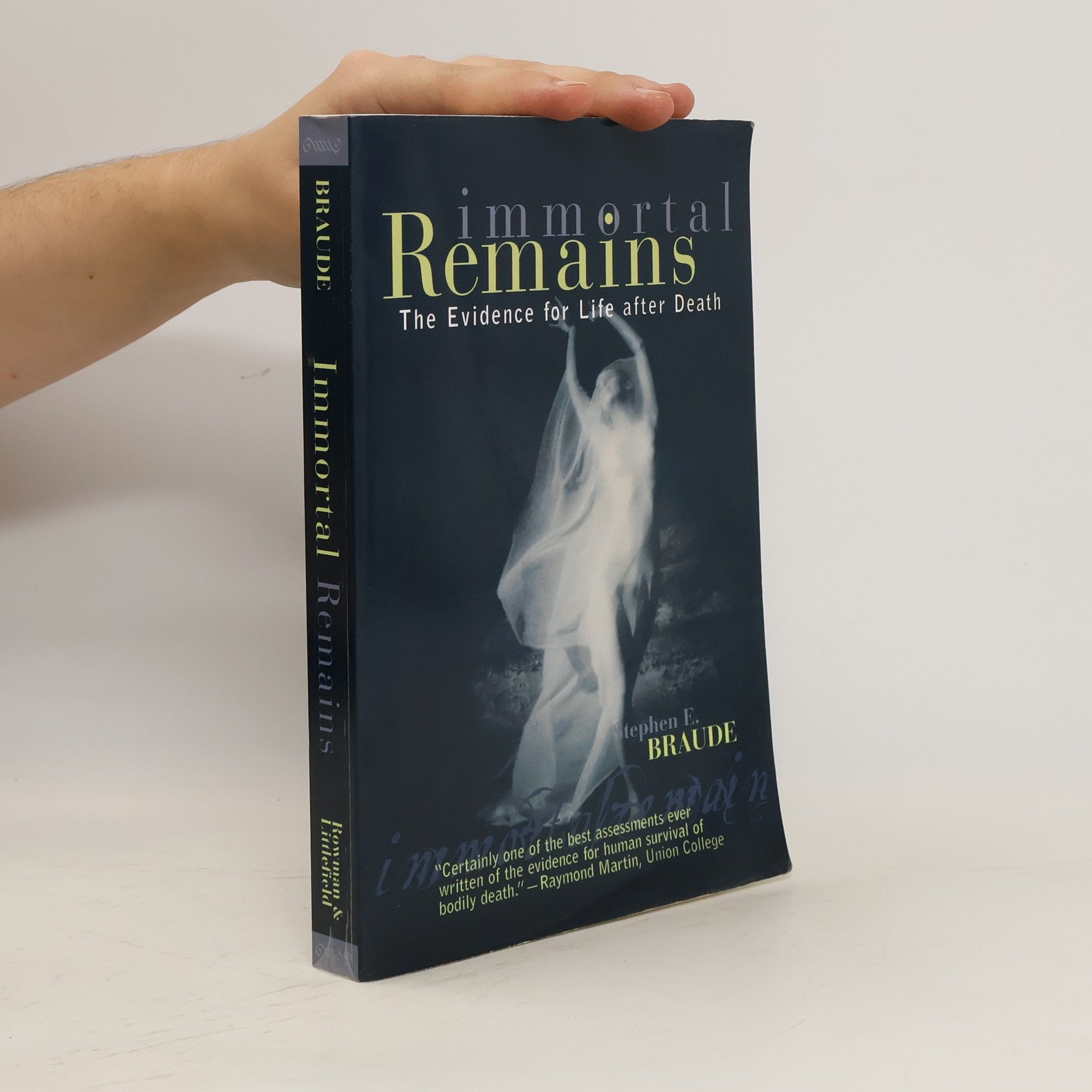Immortal Remains
- 352 páginas
- 13 horas de lectura
Do you believe in ghosts? Chances are you're either too willing, or not willing enough, to believe that personal consciousness survives after bodily death. Some underestimate the evidence for life after death, not realizing how impressive the most convincing cases are. Others overestimate it, rejecting alternative explanations too readily. In fact, several non-survivalist explanations--hidden or latent linguistic or artistic talents, extreme memory, even psychic abilities--are as interesting as the hypothesis of survival, and may be more plausible than their critics realize. Immortal Remains takes a fresh look at some of the most puzzling cases suggesting life after death, and considers how to tell evidence for an afterlife from evidence for exotic things (including psychic things) done by the living. Author Stephen E. Braude, who has done extensive research in parapsychology and dissociation, explores previously ignored issues about dissociation, creativity, linguistic skills, and the nature and limits of human abilities. He concludes that we have some reason, finally, for believing in life after death.
